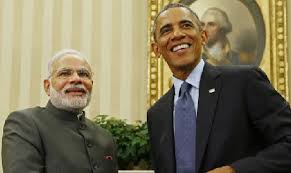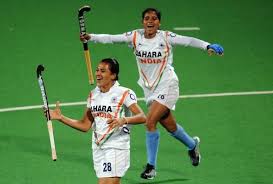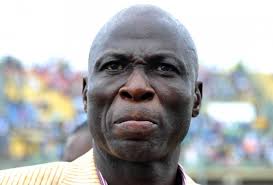U.S. President Barack Obama and new Indian Prime Minister Narendra Modi worked to deepen improving ties between their countries on Tuesday, but emerged from their second meeting in two days with little in the way of major agreements.
Obama and Modi, speaking to reporters in the Oval Office, said they had discussed a wide range of topics – from trade to space exploration to climate change to the Islamic State threat in the Middle East.
“We already have the foundation of a strong partnership,” said Modi, seated beside Obama. “We now have to revive the momentum and ensure that we get the best out of it for our people and for the world.”
A stronger relationship between the United States and India, the world’s two largest democracies, has the potential to provide a counterweight against China, whose muscle-flexing in the Asia-Pacific has rattled regional nerves.
While the leaders did not announce big-ticket agreements on a number of issues, they vowed to work closely together in what amounted to an official clearing of the air from earlier this year when India expressed outrage at the arrest in New York of one of its diplomats, who was charged with visa fraud and paying her nanny less than the minimum wage.
Obama said he was impressed by Modi’s interest in addressing poverty and growing India’s economy, as well as his determination that India help bring about peace and security in the world.
“I want to wish him luck in what I’m sure will be a challenging but always interesting tenure as prime minister in India,” Obama said.
In a unique departure from protocol, Obama took Modi on a short motorcade drive from the White House to the memorial honoring slain U.S. civil rights leader Martin Luther King Jr.
Modi, who is fasting to honor the Hindu goddess Durga, drank warm water while attending two official meals, a White House dinner with Obama on Monday night and a lunch with Vice President Joe Biden.
“The prime minister is fasting and we keep taking him to dinners and lunches,” Biden quipped in a toast at the lunch. “As we Catholics would say, that’s an occasion for sin.”
Modi, who took office in May, received a warm welcome in the United States, even though he was denied a visa in 2005 over rioting in his home state three years earlier that killed more than 1,000 people, most of them Muslims. Modi was exonerated by an Indian Supreme Court investigation.
Foreign ministry official Vikram Doraiswami told a news briefing that the two leaders agreed to negotiate a 10-year extension of a military cooperation framework due to expire at the year-end, and will stress counter-terrorism cooperation and joint efforts against militant networks.
The two sides also agreed to set up a contact group with the aim of resolving a liability issue that is discouraging U.S. investment in the Indian civil nuclear sector, and to work towards resolving a dispute over India’s blocking of a landmark World Trade Organization agreement reached last year, the official said.














